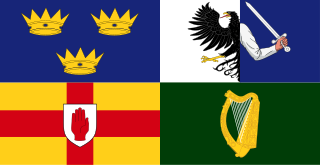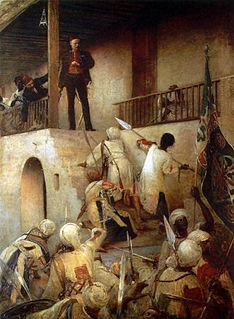| Paddick | |
|---|---|
| Pronunciation | \PA-dick\ |
| Origin | |
| Region of origin | England |
| Other names | |
| Variant(s) | Paddock, Parrock, Padwick |
Paddick is a surname of English origin, later spreading to other English language countries. There are several origin theories: [1] all may be true as there are distinct groupings of Paddicks across England.
A surname, family name, or last name is the portion of a personal name that indicates a person's family. Depending on the culture, all members of a family unit may have identical surnames or there may be variations based on the cultural rules.

England is a country that is part of the United Kingdom. It shares land borders with Wales to the west and Scotland to the north-northwest. The Irish Sea lies west of England and the Celtic Sea lies to the southwest. England is separated from continental Europe by the North Sea to the east and the English Channel to the south. The country covers five-eighths of the island of Great Britain, which lies in the North Atlantic, and includes over 100 smaller islands, such as the Isles of Scilly and the Isle of Wight.

English is a West Germanic language that was first spoken in early medieval England and eventually became a global lingua franca. It is named after the Angles, one of the Germanic tribes that migrated to the area of Great Britain that later took their name, as England. Both names derive from Anglia, a peninsula in the Baltic Sea. The language is closely related to Frisian and Low Saxon, and its vocabulary has been significantly influenced by other Germanic languages, particularly Norse, and to a greater extent by Latin and French.
The first group, from the Somerset, Dorset and Bristol area, is thought to derive from the Old English paddock meaning toad. In medieval England, paddock was a nickname applied to anyone who was considered mean or spiteful, [2] and the progenitor of this group is thought to have been a French merchant called Jean le Pedoc who lived in Bristol in the early 14th century.

Somerset is a county in South West England which borders Gloucestershire and Bristol to the north, Wiltshire to the east, Dorset to the south-east and Devon to the south-west. It is bounded to the north and west by the Severn Estuary and the Bristol Channel, its coastline facing southeastern Wales. Its traditional border with Gloucestershire is the River Avon. Somerset's county town is Taunton.
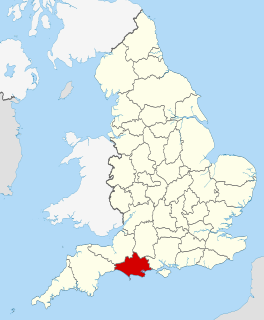
Dorset is a county in South West England on the English Channel coast. The ceremonial county comprises the unitary authority areas of Bournemouth, Christchurch and Poole and Dorset. Covering an area of 2,653 square kilometres (1,024 sq mi), Dorset borders Devon to the west, Somerset to the north-west, Wiltshire to the north-east, and Hampshire to the east. The county town is Dorchester which is in the south. After the reorganisation of local government in 1974 the county's border was extended eastward to incorporate the Hampshire towns of Bournemouth and Christchurch. Around half of the population lives in the South East Dorset conurbation, while the rest of the county is largely rural with a low population density.

Bristol is a city and county in South West England with a population of 459,300. The wider district has the 10th-largest population in England. The urban area population of 724,000 is the 8th-largest in the UK. The city borders North Somerset and South Gloucestershire, with the cities of Bath and Gloucester to the south-east and north-east, respectively. South Wales lies across the Severn estuary.
The second group comes from the English Midlands, particularly Shropshire and Staffordshire, though also through time from Birmingham and Lancashire. This name, although most commonly written as Paddock rather than Paddick, was originally written as Parrock and derives from the same etymology as the word "park". The vast majority of people with the last name Paddick or Paddock in England are descended from this group. [1]

Shropshire is a county in the West Midlands of England, bordering Wales to the west, Cheshire to the north, Staffordshire to the east, and Worcestershire and Herefordshire to the south. Shropshire Council was created in 2009, a unitary authority taking over from the previous county council and five district councils. The borough of Telford and Wrekin has been a separate unitary authority since 1998 but continues to be included in the ceremonial county.

Staffordshire is a landlocked county in the West Midlands of England. It borders with Cheshire to the northwest, Derbyshire and Leicestershire to the east, Warwickshire to the southeast, West Midlands and Worcestershire to the south, and Shropshire to the west.

Birmingham is the second-most populous city in the United Kingdom, after London, and the most populous city in the English Midlands. It is also the most populous metropolitan district in the United Kingdom, with an estimated 1,137,123 inhabitants, and is considered the social, cultural, financial, and commercial centre of the Midlands. It is the main local government of the West Midlands conurbation, which is the third most populated urban area in the United Kingdom, with a population of 2,897,303 in 2017. The wider Birmingham metropolitan area is the second largest in the United Kingdom with a population of over 4.3 million. It is frequently referred to as the United Kingdom's "second city".
The third group is concentrated around the South East England coast, particularly in the counties of Hampshire and Sussex, and this group is a variant of the surname Padwick.

South East England is the most populous of the nine official regions of England at the first level of NUTS for statistical purposes. It consists of Berkshire, Buckinghamshire, East Sussex, Hampshire, the Isle of Wight, Kent, Oxfordshire, Surrey and West Sussex. As with the other regions of England, apart from Greater London, the south east has no elected government.
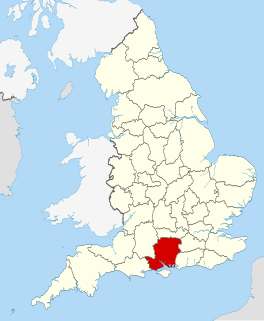
Hampshire is a county on the southern coast of England. The county town is the city of Winchester. Its two largest cities, Southampton and Portsmouth, are administered separately as unitary authorities; the rest of the county is governed by Hampshire County Council.
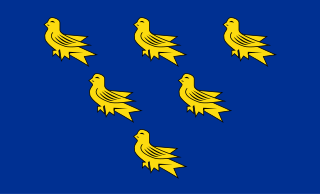
Sussex, from the Old English Sūþsēaxe, is a historic county in South East England corresponding roughly in area to the ancient Kingdom of Sussex. It is bounded to the west by Hampshire, north by Surrey, northeast by Kent, south by the English Channel, and divided for many purposes into the ceremonial counties of West Sussex and East Sussex. Brighton and Hove, though part of East Sussex, was made a unitary authority in 1997, and as such, is administered independently of the rest of East Sussex. Brighton and Hove was granted City status in 2000. Until then, Chichester was Sussex's only city.
The following notable people have or had the surname Paddick:
- Brian Paddick (born 1958), former British police commander and candidate in 2008 for Mayor of London
- Hugh Paddick (1915–2000), British actor
- John Paddick (born 1943), British athlete
- Paul Paddick (born 1967), Australian children's television presenter

The Mayor of London is the executive of the Greater London Authority. The current Mayor is Sadiq Khan, who took up office on 9 May 2016. The position was held by Ken Livingstone from the creation of the role on 4 May 2000, until he was defeated in May 2008 by Boris Johnson, who served two terms before being succeeded by Khan.

Hugh William Paddick was an English actor, whose most notable role was in the 1960s BBC radio show Round the Horne, in sketches such as "Charles and Fiona" and "Julian and Sandy". Both he and Kenneth Williams are largely responsible for introducing the underground language polari to the British public.
John Chester Paddick is a British athlete. In 1964, he represented Great Britain and Northern Ireland in the Tokyo Olympics in the men's 20 kilometre walk event and came 10th overall with a time of 1 hour, 33 minutes and 28.4 seconds. He was just under four minutes behind the winner, Ken Matthews.


